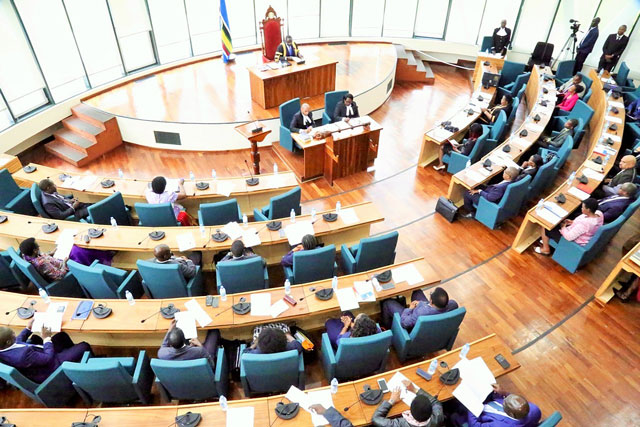
Kampala, Uganda | THE INDEPENDENT | The High Court in Kampala has dismissed a case filed by Gilbert Agaba and three other former candidates who participated and lost in the East African Legislative Assembly-EALA elections last year.
Acting High Court judge Dr. Douglas Karekona Singiza, ruled that his court did not have the power to interpret the East African Community treaty under which the petition was filed.
“It is the decision of this court that it was the intention of the partner states that only the EACJ should be clothed with the mandate to interpret the treaty because ‘institutionally speaking’, it is the organ most suited to do so. As such, any petition built on the idea that this court may in fact exercise some ‘plenary’ powers to interpret the treaty must fail. Given the diversity of legal systems under the treaty, it is also wise that national courts should be restrained from encroaching on a mandate that they cannot efficiently exercise,” Singiza’s 13-page ruling reads in part.
Agaba and others who participated in the September 2022 elections to become Uganda’s representative in the EALA after failing to triumph petitioned a court challenging the manner in which the election was organized which they said contravened not only the East African Legislative Assembly Elections Act but also the Ugandan Constitution.
In their petition, they argued that the elections were predetermined and that numerous irregularities affected the results, such as the simultaneous conduct of polling and campaigning, the usage of a ballot paper with an ‘arbitrary’ order of candidates’ names, and the failure to conduct voting in plenary. They also complained about ex–officio Members of Parliament participating in the election.
They also argued that the irregularities and illegalities also offended the Rules of Procedure of Parliament and substantially affected the election results to their disadvantage. In his affidavit in support of the petition, Agaba also complained about the bias of the Speaker of the Parliament who was the returning officer. He alleged that Anita Among, the speaker, campaigned directly for some of the candidates which disadvantaged him.
They, therefore, sought the court to order that; the nine MPs were not validly elected, that the result of the election is annulled and that fresh elections be conducted. However, at the hearing of the matter, the respondents who included the nine EALA MPs, the Attorney General, and the Speaker of parliament raised a preliminary objection saying the petition as presented before the court was bad in law because it sought to interpret the provisions of the treaty yet the court had no jurisdiction to do so.
In his ruling, Singiza observed that although local courts have the power to adjudicate EALA election disputes, the petition as had been framed sought more than just adjudicating election disputes. “Since the petition in its current form seeks to interpret the treaty, it is dismissed with costs to the respondents for want of jurisdiction,” Singiza ruled.
EALA elections were marred with allegations of not only voter bribery but also ballot stuffing. Of the nine slots, the ruling National Resistance movement scooped six while three were won by candidates still affiliated with the party.
****
URN
 The Independent Uganda: You get the Truth we Pay the Price
The Independent Uganda: You get the Truth we Pay the Price





